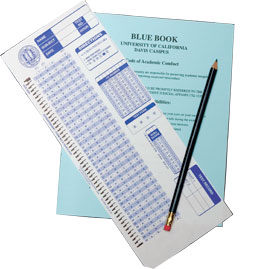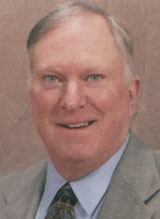Volume 24 · Number 4 · Summer 2007

Aggies Remember
A Matter of Honor
Back in the ’60s, the Honor Code reflected the openness and innocence of the UC Davis campus and the trust students had in each other.
When my son George graduated from UC Davis in the spring of 1992, I had occasion to visit the campus, which I had last left in the spring of 1964 and had not visited since. It was remarkable to see how much the buildings that I had remembered from my freshman year had changed. Bixby Hall, which I had thought was a huge residence hall when we were the first inhabitants in the fall of 1960, had shrunk and seemed insignificant beside the much larger buildings on campus.
But what I immediately noticed, in talking to my son, was the lack of the Honor Code at UC Davis. An integral part of my time at UC Davis had, sometime in the intervening 28 years, vanished.
UC Davis in the early ’60s was a tranquil campus. It was isolated from the surrounding community and was still called the University Farm.
“Bossy Cow Cow!” was a cheer raised at athletic events. The student body in 1960 was under 4,000; bicycles were the accepted mode of transportation, and it seemed that everyone knew everyone else. There were few strangers in the student body.
And there was one feature that made UC Davis particularly distinctive from the other UC campuses: the Davis Honor Code. That code, simplified, stated: “I shall not cheat on, or knowingly receive or give assistance on, examinations, and I shall not condone cheating by other persons.” The Honor Code exemplified the openness and innocence of the UC Davis campus.
It was not uncommon to see students take their blue books, in which they wrote midterm and final exam answers, from the examination room to the Quad and take their examination, sitting on the grass, with their backs against a tree. In periods of good weather, more than half the class would take their examination outside. There were no proctors.
The Honor Code relied on the individual student’s personal sense of responsibility, and it was administered by an elected student panel known as the Welfare Council. The Welfare Council was empowered to hold quasi-administrative hearings involving students who were accused of violating the code. Its meetings varied in time and location, with only the participants knowing the when and where of a meeting, and it heard testimony from the accuser, the alleged violator and witnesses in a nonpublic venue to avoid any hint of opprobrium to the accused. The Welfare Council then made recommendations to the school administration as to the appropriate discipline, if any, up to and including dismissal from UC Davis. It was a process that worked well and made the campus unique in the UC system.
I was proud to have served a year on the Welfare Council and sad to learn that it and the Honor Code were no more. I later discovered that it had fallen into disfavor in the early 1970s—the victim of a bigger campus, larger classes and a growing feeling of anonymity among students. I wonder, too, if Watergate, the Vietnam War and the resulting mistrust in government might have caused the self-governing honor system to fail. Students and faculty both advocated for change, and in 1976 the campus adopted a Code of Academic
Conduct and the Office of Student Judicial Affairs was formed to handle misconduct cases. The new code called on the faculty and the administration to share responsibility with students for their conduct. Individual honesty was no longer enough; gone were the exams on the Quad.

But the UC Davis Honor Code, while it existed, was an affirmation of the inherent trust that students of that era had in themselves and each other. It lives on in the new academic code’s call for students to conduct themselves honestly and honorably.
George R. Kucera ’64 graduated from UC Davis with a degree in history and with a commission as a second lieutenant in the U.S. Army Reserves. He served as a Special Forces Airborne Infantry officer before returning to school at the UC Hastings College of the Law in San Francisco, graduating in 1969. He practiced law until his retirement in 1995 and currently lives in Coeur d’Alene, Idaho, with his wife, Vladlena. His two sons live and work in the Bay Area.
